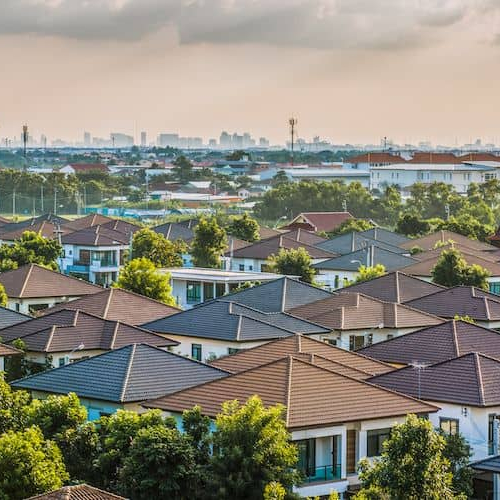What is a variance and how do you get one?
Mar 9, 2024
•5-minute read
If you’re a homeowner or real estate investor with big plans for your property, you may need a variance to realize your vision.
Let’s look at what a variance is in real estate, explore different types of variances, and consider tips for a seamless variance application process.
What is a variance in real estate?
A variance is a waiver a property owner can use to deviate from existing zoning laws. However, variances don’t modify zoning laws. They allow property owners to change or adjust land use under unique circumstances in ways that otherwise wouldn’t be permitted.
What is zoning?
A local governing body establishes a zoning law or ordinance to dictate how you can use a property in a particular area or zone. A zoning ordinance protects the structure, development and geographic integrity of real estate a local government has jurisdiction over.
Some zones are strictly for residential and single-family homes, and others are for multifamily homes or commercial purposes. Common zoning classifications include residential, commercial, industrial, agricultural and hospitality.
Although zoning laws are supposed to benefit a community, they’re often criticized as encumbrances on private property rights. Zoning ordinances can be an obstacle if you want to use your property or land in a way that’s not allowed under your zoning laws – which is where a variance can help.
How do variances work?
Variances are often granted when a property owner can demonstrate that existing zoning regulations are a difficult and hindering factor in the function of their property.
Each municipality has rules for requesting and approving variances. Typically, the property or landowner submits an application, writes a letter and pays a fee to their zoning board. The board reviews the application and all accompanying materials and notifies affected property owners. Sometimes, a zoning board will hold a city council hearing to make a final decision.
Types of variances in real estate
There are several reasons why a property owner may seek a variance. The two most common types of variances in real estate are area variances and use variances.
Once your variance is approved, you may have a limited time to make your requested changes to the property. However, you aren’t required to make the changes and won’t be penalized if you decide not to go through with your plans.
Area variance
An area variance allows property owners to make physical changes to a property their zoning requirements would typically restrict.
Examples of area variances include:
- Putting up a new fence where fences aren’t customarily permitted
- Building a structure closer to a roadway or property line than is permitted
- Building a structure that’s larger in square footage or higher than is permitted
Area variances are the most common type of variance in real estate for homeowners and are frequently approved.
Use variance
A use variance allows you to use or operate your property in a manner typically restricted by zoning requirements.
Examples of use variances are:
- Renovating a single-family home into a multifamily home
- Opening a commercial business in a residential district
- Building an industrial facility in an agricultural zone
A use variance – typically requested by real estate developers and investors – can be harder to secure than an area variance.
How to get a variance in real estate
Obtaining a zoning variance is a comprehensive and lengthy process. Homeowners and real estate developers often find it helpful to work with a real estate attorney specializing in zoning ordinances. Not only can a real estate attorney help you sift through the paperwork and decipher the fine print, but they can also represent you during formal hearings in case of appeals or disputes over your variance application.
Consult your local government on how to apply for a variance. Each municipality may have a different process and requirements.
Next, we’ve outlined general guidelines and requirements for obtaining a variance.
Step 1: Fill out an application
Usually, the first step to receiving a variance is to request and complete an application, which you can typically obtain through the local zoning board or authority.
Step 2: Write a variance letter
In addition to the application, you or your attorney should write a letter stating why you need a variance.
You’ll want to be clear and concise about what you want to do with your property and why you need a variance to the zoning law. Address your letter to the members of the zoning board and include detailed information on:
- The specific zoning law or ordinance in question
- The reason for the request
- How the current zoning requirements cause unnecessary hardship
- How the variance, if granted, won’t harm public interests
Step 3: Wait for a cecision
After submitting your application and letter, the local zoning board will review your materials and may contact your neighbors or other affected parties for more information. If your application is approved, you’ll receive a variance permit.
Step 4: Appeal a rejection
You can appeal if your variance request is denied. The appeal process will depend on your local government or zoning authority, but it typically includes a public city council or planning commission hearing.
At a public hearing, the applicant and community members can share their concerns or support for the variance directly with the council or commission that can approve the request.
The city council or commission members will vote on the application and make a final decision. If your variance gets denied again, there’s usually a mandatory waiting period before you can submit a new application.
Tips for getting a zoning variance
Once you’ve contacted your zoning board and requested an application, you can take the following steps to increase your chances of variance authorization:
- Review the application to make sure you followed all requirements for your variance
- Consult your contractor to ensure your project plan is realistic
- Talk with your neighbors about your plans
- Attend zoning board meetings to become familiar with the process and terminology
- Work with a real estate attorney
Variance FAQs
Navigating the intricacies of variances and zoning regulations can be challenging. Let’s walk through some common variance real estate questions.
What does variance mean in zoning?
A variance is a waiver a property owner uses to make changes to their land that existing local zoning ordinances would typically restrict.
A variance doesn’t legally change zoning requirements. It grants special permission for a property owner to make changes to the physical dimensions of their land (an area variance) or the use of the land (a use variance).
Can neighbors stop a variance?
Yes, they can. Since the appeal process is typically a public hearing, a neighbor or community member can voice their concerns or opposition to a variance. While there’s no guarantee, clarifying in your application that the variance wouldn’t harm public interests may compel critics to drop their opposition.
Do zoning variances expire?
Most variances don’t expire. They’re tied to the land as long as the changes are completed. However, if you sell your property before making the changes approved by your variance, the new property owners may need to file a variance.
Depending on the type of variance, there may be a project completion deadline. Use variances often have time limits to make approved changes. The time frame can be influenced by the current state of the surrounding area and any anticipated development plans.
Review your variance carefully to see if it has a time limit or expiration date.
The bottom line
A variance in real estate is an exception to a zoning law. A property owner can seek a variance for any number of reasons. Area and use variances are the most frequently requested variances.
Area variances allow property owners to build or construct something typically prohibited by physical zoning requirements. Use variances permit property owners to use or operate their property in a way existing zoning requirements don’t allow. Before making any modifications, review your local zoning laws and obtain a variance for any changes that require a waiver.
If you’re ready to unlock the potential in your home, check if you need a variance and explore your refinancing options. To fund your next home improvement project, apply with Rocket Mortgage® and start the initial approval process.

Victoria Araj
Victoria is a former Team Leader of editorial content at Rocket Mortgage and she held roles in mortgage banking, public relations and more in her 19+ years with the company. She holds a bachelor’s degree in journalism with an emphasis in political science from Michigan State University, and a master’s degree in public administration from the University of Michigan.
Related resources
4-minute read
Real property: Definition and examples
Real property is any land or anything attached to it that gives it value. Here’s how this concept works and why it matters to homeowners.
Read more

6-minute read
Restrictive covenants explained
Restrictive covenants are rules in the deed that limit how the homeowner can use their property. Learn more about these rules and how they may affect you.
Read more

8-minute read
10-year mortgage rates: What to expect in 2025
A 10-year mortgage may come with lower interest rates than a 15- or 30-year mortgage. Learn...
Read more